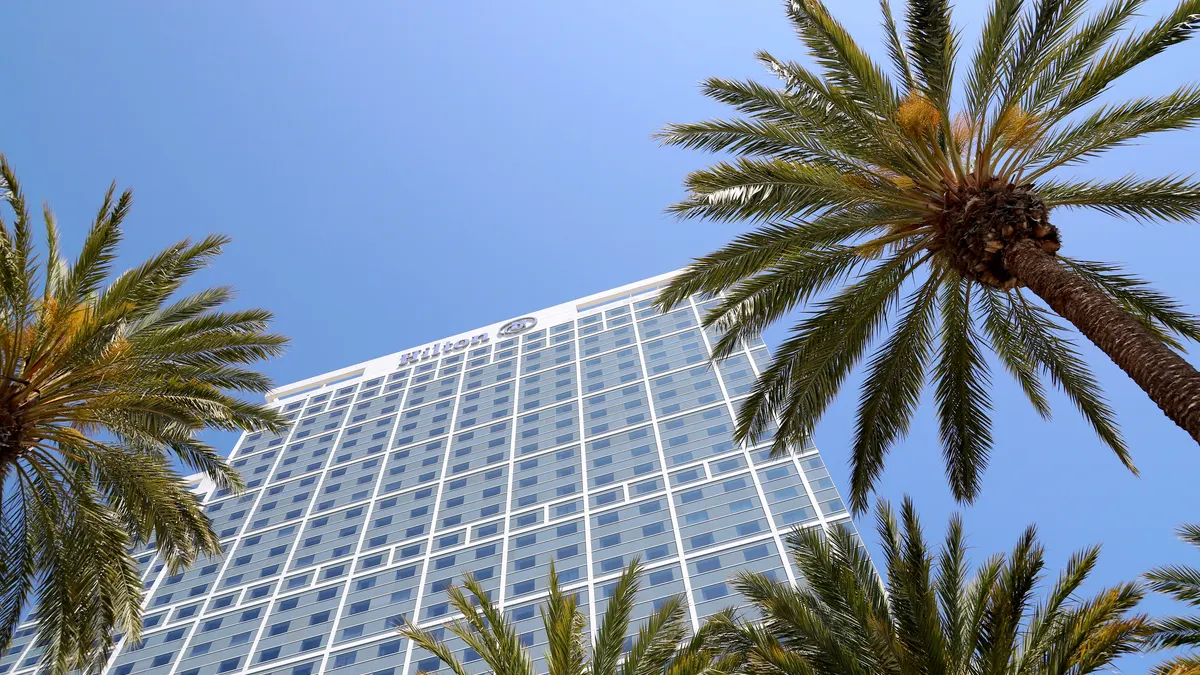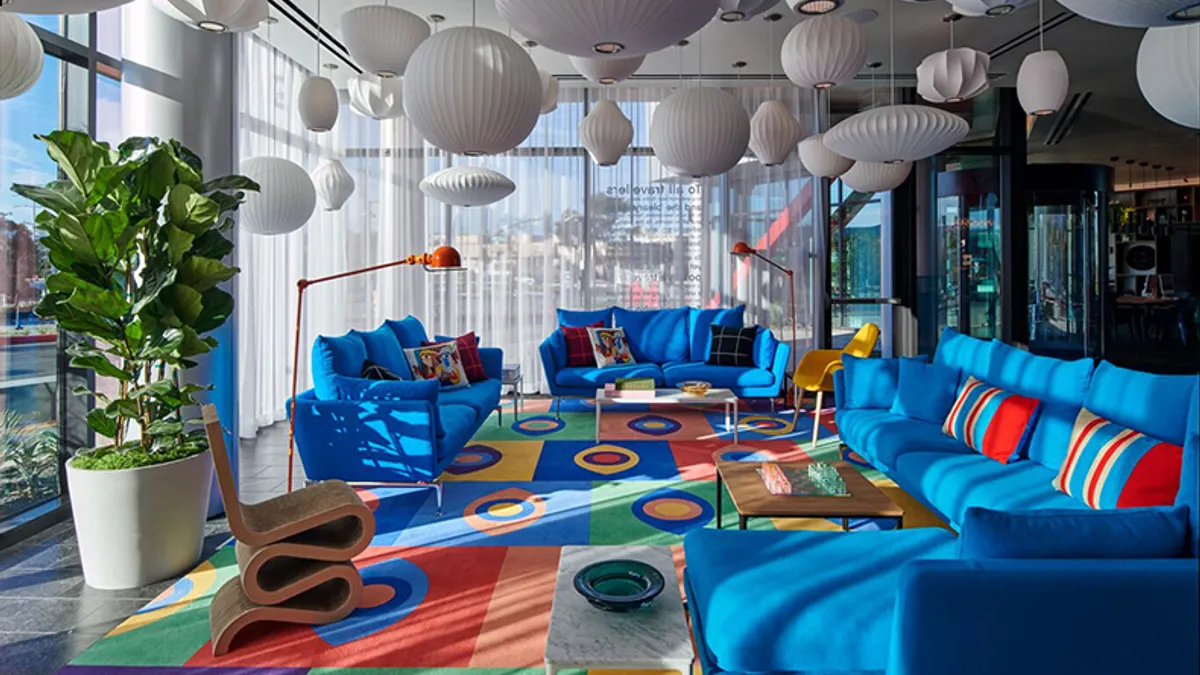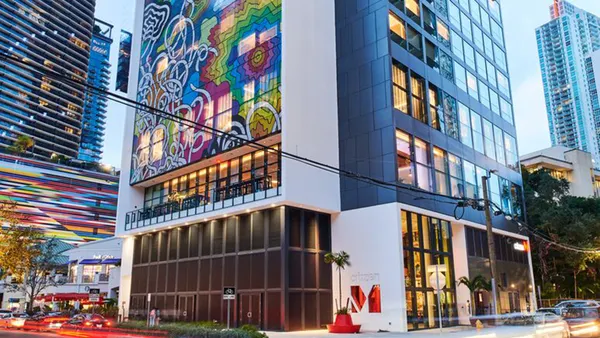Dive Brief:
- Travelers are in “wait-and-see mode” amid an uncertain economic environment, resulting in dampened demand for hotel stays, Hilton CEO Chris Nassetta said in a first-quarter earnings call Tuesday.
- Leisure travel, in particular, is being impacted by macroeconomic conditions, Nassetta said. Hilton’s systemwide comparable RevPAR grew 2.5% year on year in the first quarter, toward the low end of the company’s guidance range, according to a Tuesday earnings report. RevPAR grew 2.1% year on year in the U.S.
- Nassetta said he remained optimistic that the impact of economic uncertainty would be minimal going forward, touting the company’s development momentum and luxury and lifestyle segment growth.
Dive Insight:
Though Hilton saw “solid” performance at the end of 2024 that bled into January and February, economic pressures intensified in March, impacting travel demand, Nassetta shared on the call.
While leisure travelers were particularly impacted, group and business transient travelers showed more resilience, with group travel growing 6% year on year supported by growth in urban markets and company meetings.
Business transient RevPAR grew 2%, led by small- and medium-sized business travelers, which Nassetta called “a resilient customer.”
Demand trends have continued to weaken into the second quarter, though, he added, and short-term bookings are “roughly flat” year over year.
“We believe travelers are largely in a wait-and-see mode as the rapidly changing macro environment continues to unfold,” he said.
Hotel industry experts have said President Donald Trump’s tariffs, in particular, could further impact travel demand.
Development, however, continues to be a success story for Hilton. The company approved 32,600 new rooms for development during Q1, bringing the total pipeline to 503,400 rooms as of the end of the quarter. It also added 20,100 rooms to its system, leading to a net unit growth of 7.2%.
Nassetta said Hilton “remains confident” that it will deliver net unit growth of from 6% to 7% for the full year 2025.
Luxury and lifestyle hotels fared particularly well, with properties in the category accounting for 30% of Hilton’s openings in the quarter, due partly to conversion-forward brands like Small Luxury Hotels of the World, Curio Collection and Tapestry Collection.
Despite weakened demand, Nassetta called himself “an optimist by nature.”
“My own belief is you will see some of that, if not a lot of that, uncertainty wane over the next couple quarters, and that will allow the underlying strength of the economy to shine through again,” he shared on the call.
Nassetta cited the strength of conversions, in particular, as a useful tool in the case of a recessionary environment, noting that conversions often pick up in times of economic distress.
“We have a huge amount of momentum on conversions,” he said.
Tariffs could put future construction projects at risk, experts told Hotel Dive sister publication Construction Dive.










